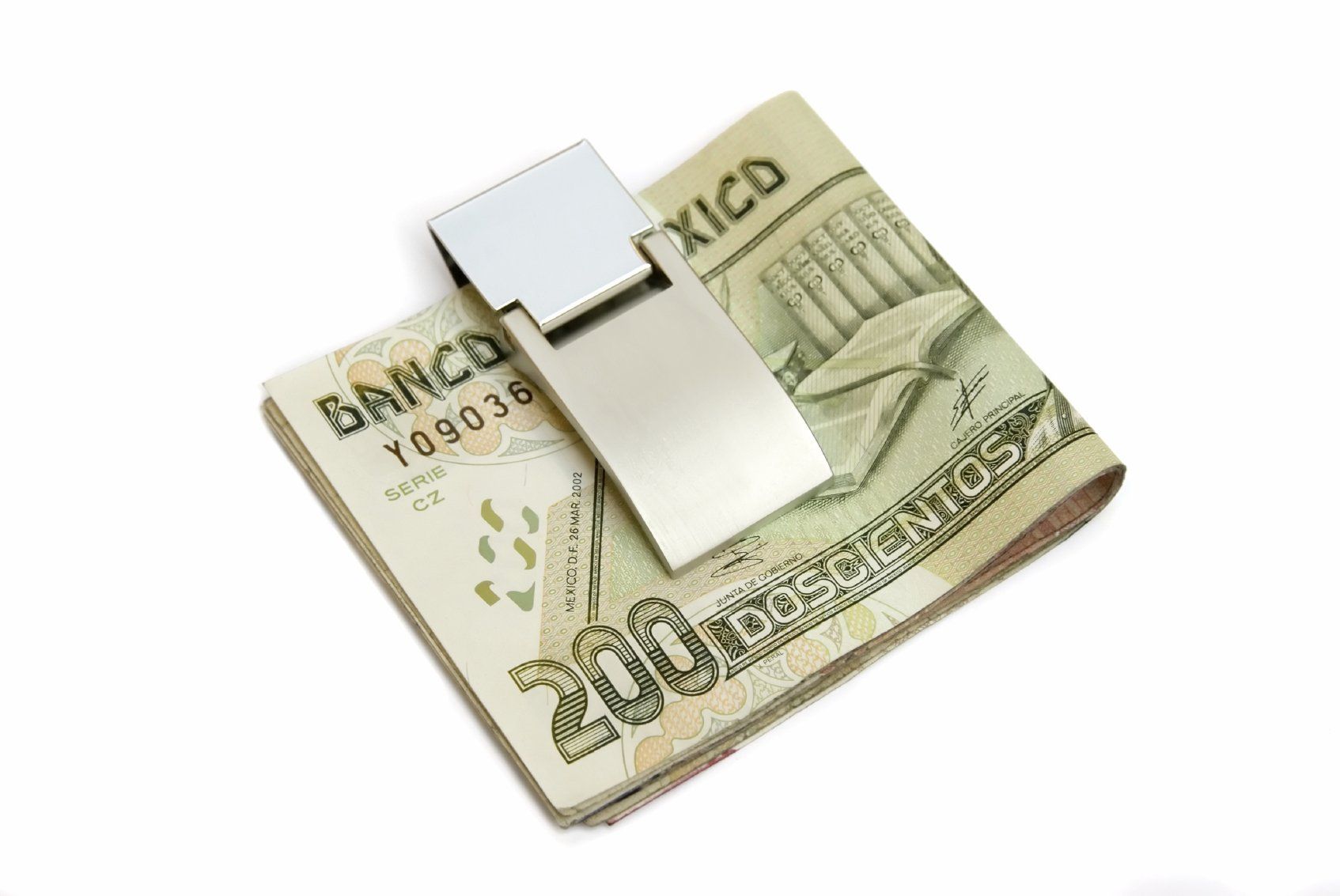Eine neue steuerfreie Prämie für Ihre Arbeitnehmer
ROMAIN ACKER • 10 novembre 2022
Eine neue steuerfreie Prämie für Ihre Arbeitnehmer

Nach der "Sonderprämie für die Kaufkraft" wollte der Gesetzgeber eine dauerhaftere steuerfreie Prämie einführen: die "Prämie für die Aufteilung des Mehrwerts" (Prime pour le partage de la Valeur Ajoutée).
Diese ermöglicht es, bis zu 3.000 € nahezu sozialabgaben- und steuerfrei zu verteilen, bei bestimmten Unternehmen sogar bis zu 6.000 €.
Hauptmerkmale
:
- Sie ist freiwillig.
- Ihre Auszahlung kann über mehrere Monate verteilt werden.
- Sie kann durch eine einfache einseitige Entscheidung des Arbeitgebers eingeführt werden.
- Sie ist teilweise mit der Sonderprämie für die Kaufkraft bis 2022 kumulierbar.
Für weitere Informationen können Sie diese Datei
herunterladen oder können Sie sich an Ihr bevorzugtes Lohnbüro/Steuerberater wenden.

Après la « Prime Exceptionnelle pour le Pouvoir d’Achat », le législateur a souhaité l’instauration d’une prime exonérée plus pérenne : la « Prime pour le Partage de la Valeur Ajoutée ». Celle-ci permet de distribuer jusqu’à 3000 € en quasi exonération de charges sociales et d’impôts et jusqu’à 6000 € pour certaines entreprises. Principales caractéristiques : - Elle est facultative - Son versement peut être fractionné sur plusieurs mois. - Elle peut être instaurée par une simple Décision Unilatérale de l’Employeur. - Elle est partiellement cumulable avec la Prime Exceptionnelle pour le Pouvoir d’Achat pour 2022. Pour plus d’informations, vous pouvez télécharger ce fichier ci-dessous ou contacter votre expert-comptable préféré.

Après la « Prime Exceptionnelle pour le Pouvoir d’Achat », le législateur a souhaité l’instauration d’une prime exonérée plus pérenne : la « Prime pour le Partage de la Valeur Ajoutée ». Celle-ci permet de distribuer jusqu’à 3000 € en quasi exonération de charges sociales et d’impôts et jusqu’à 6000 € pour certaines entreprises. Principales caractéristiques : - Elle est facultative - Son versement peut être fractionné sur plusieurs mois. - Elle peut être instaurée par une simple Décision Unilatérale de l’Employeur. - Elle est partiellement cumulable avec la Prime Exceptionnelle pour le Pouvoir d’Achat pour 2022. Pour plus d’informations, vous pouvez télécharger ce fichier ci-dessous ou contacter votre expert-comptable préféré.

Die außerordentliche Kaufkraftprämie wird durch Artikel 4 des Gesetzes Nr. 2021-953 vom 19. Juli 2021 zur Bereinigung der Finanzen für das Jahr 2021 erneuert. Unternehmen, die dies wünschen, können ihren Mitarbeitern unter folgenden Bedingungen einen Bonus zahlen, der von Steuern und Sozialversicherungsbeiträgen befreit ist - der Bonus muss zwischen dem 1. Juni 2021 und dem 31. März 2022 ausgezahlt werden - das monatliche Entgelt des begünstigten Arbeitnehmers muss weniger als das Dreifache des SMIC in den 12 Monaten vor der Auszahlung der Prämie betragen - die Prämie kann nicht an die Stelle einer Lohnerhöhung oder einer Prämie treten, die in einem Tarifvertrag, einem Arbeitsvertrag oder einer betrieblichen Übung vorgesehen ist. Sie können einen außergewöhnlichen Kaufkraftbonus von : - bis zu 1 000 €, wenn Ihr Unternehmen 50 oder mehr Beschäftigte hat und keine Gewinnbeteiligungsvereinbarung getroffen wurde - bis zu 2.000 €, wenn Sie eine der folgenden Bedingungen erfüllen - weniger als 50 Mitarbeiter haben - haben eine Gewinnbeteiligungsvereinbarung eingeführt - unter einen Branchentarifvertrag oder eine Betriebsvereinbarung fallen, die die Aufwertung des Berufs von Arbeitnehmern vorsieht, die im Jahr 2020 oder 2021 zur Kontinuität der Wirtschaftstätigkeit und/oder zur Aufrechterhaltung des sozialen Zusammenhalts beigetragen haben, indem sie während der Zeiten einer gesundheitlichen Notlage ausschließlich oder hauptsächlich vor Ort gearbeitet haben. Die Höhe der außergewöhnlichen Kaufkraftprämie sowie gegebenenfalls die Obergrenze und die Bedingungen für die Anpassung ihrer Höhe an die Begünstigten sind Gegenstand einer Betriebs- oder Gruppenvereinbarung, die gemäß den in Artikel L. 3312-5 des Arbeitsgesetzes aufgeführten Bedingungen geschlossen wird, oder einer einseitigen Entscheidung des Arbeitgebers. Im Falle einer einseitigen Entscheidung informiert der Arbeitgeber vor der Auszahlung der Prämie den in Artikel L. 2311-2 desselben Gesetzbuchs genannten Sozial- und Wirtschaftsausschuss.

The exceptional purchasing power bonus is renewed by article 4 of the law n° 2021-953 of 19 July 2021. Companies wishing to do so may pay their employees a bonus exempt from taxes and social security contributions, under the following conditions - the bonus must be paid between 1 June 2021 and 31 March 2022 - the monthly remuneration of the beneficiary employee must be less than 3 times the amount of the SMIC during the 12 months preceding the payment of the bonus - the bonus cannot replace a pay rise or a bonus provided for by a wage agreement, an employment contract or a company practice. You can pay an exceptional purchasing power bonus of : - up to €1 000 if your company has 50 employees or more and has not set up a profit-sharing agreement - up to €2,000, if you meet one of the following conditions - have fewer than 50 employees - have implemented a profit-sharing agreement - be covered by a branch agreement or a company agreement providing for the valorisation of the profession of employees who have contributed, in 2020 or 2021, to the continuity of economic activity and/or to the maintenance of social cohesion by working exclusively or mainly on site during the periods of a state of health emergency. The amount of the exceptional purchasing power bonus as well as, where applicable, the ceiling and the conditions of modulation of its level according to the beneficiaries shall be the subject of a company or group agreement concluded in accordance with the terms and conditions listed in Article L. 3312-5 of the Labour Code or a unilateral decision by the employer. In the case of a unilateral decision, the employer shall inform the Social and Economic Committee mentioned in Article L. 2311-2 of the same Code before paying the bonus.

La prime exceptionnelle de pouvoir d'achat est reconduite par l'article 4 de la loi n° 2021-953 du 19 juillet 2021 de finances rectificative pour 2021. Les entreprises qui le souhaitent peuvent verser à leurs salariés une prime exonérée d’impôts et de cotisations sociales, dans les conditions suivantes : - la prime doit être versée entre le 1er juin 2021 et le 31 mars 2022 - la rémunération mensuelle du salarié bénéficiaire doit être inférieure, au cours des 12 mois précédant le versement de la prime, à 3 fois le montant du SMIC - la prime ne peut se substituer à une augmentation de rémunération ou à une prime prévue par un accord salarial, un contrat de travail ou un usage dans l’entreprise. Vous pouvez verser une prime exceptionnelle de pouvoir d’achat allant : - jusqu'à 1 000 €, si votre entreprise compte 50 salariés ou plus et n'a pas mis en place d'accord d'intéressement - jusqu'à 2 000 €, si vous respectez l'une des conditions suivantes : • compter moins de 50 salariés • avoir mis en œuvre un accord d'intéressement • être couvert par un accord de branche ou un accord d'entreprise prévoyant la valorisation du métier des salariés ayant contribué, en 2020 ou 2021, à la continuité de l'activité économique et/ou au maintien de la cohésion sociale en exerçant exclusivement ou majoritairement sur site pendant les périodes d'état d'urgence sanitaire. Le montant de la prime exceptionnelle de pouvoir d'achat ainsi que, le cas échéant, le plafond et les conditions de modulation de son niveau selon les bénéficiaires font l'objet d'un accord d'entreprise ou de groupe conclu selon les modalités énumérées à l'article L. 3312-5 du code du travail ou d'une décision unilatérale de l'employeur. En cas de décision unilatérale, l'employeur en informe, avant le versement de la prime, le Comité Social et Economique mentionné à l'article L. 2311-2 du même code.

They are twofold: on the one hand, your employee must be able to prove that he is subject to social security in France (Form A1) and on the other hand, he must be able to take advantage of the care of his care abroad if necessary. Form A1 Form A1 certifies the social legislation applicable to an employee who is not affiliated in the country where he works. This form has been mandatory since 2010 for all travel of less than 24 months within the European Union as well as in Switzerland, Lichtenstein, Iceland and Norway. This formality, in the texts, also concerns simple business trips or participation in congresses and trainings. There is a great deal of opposition to the cumbersome approach and the texts are being reviewed to prevent some short trips. For the record, the European Commission had answered the question of MP Evelyne Gebhardt of 07.12.2011 on this subject: "The posting situation of a very short period should be dealt with by the relevant national institutions in a flexible and with common sense and does not normally require a posting certificate if the posting takes just a few days and no incident such as an accident at work occurs. If necessary, the competent institution of the sending State can issue the certificate retroactively." Form A1 is to be requested from the Caisse Primaire d'Assurance Maladie at the company's headquarters. The European Health Insurance Card The European Health Insurance Card allows the employee to have access to the entire care system of the country where he is located, under the same conditions as the insureds of that country. However, this faculty is limited to unforeseen and medically necessary care. If a care is fully taken care of in the host country, it will also be for the insured with his European Health Insurance Card. If the care is paid, the insured will be able to request a refund on his return to France, upon presentation of the invoices paid. The European Health Insurance Card is to be requested by the employee on his Ameli space. It is valid for two years from its issue date.

Sie sind in zweierlei Form: Zum einen muss Ihr Arbeitnehmer nachweisen können, dass er der Sozialversicherung in Frankreich (Formular A1) unterliegt, und zum anderen muss er in der Lage sein, im Bedarfsfall von der Kostenübernahme im Ausland zu profitieren. Formular A1 Das Formular A1 bescheinigt, welche Sozialvorschriften für einen Arbeitnehmer gelten, der in dem Land, in dem er arbeitet, nicht versichert ist. Dieses Formular ist seit 2010 für Reisen innerhalb der Europäischen Union von weniger als 24 Monaten sowie in der Schweiz, Lichtenstein, Island und Norwegen obligatorisch. Diese Formalität bezieht sich in den Texten auch auf einfache Geschäftsreisen oder die Teilnahme an Kongressen und Schulungen. Die Schwerfälligkeit des Vorgehens stößt auf großen Widerstand, und die Texte werden derzeit überprüft, um bestimmte kurze Reisen davon auszuschließen. Zur Erinnerung: Die Europäische Kommission hatte auf die Frage der Abgeordneten Evelyne Gebhardt vom 07.12.2011 zu diesem Thema geantwortet: "The posting situation of a very short period should be dealt with by the relevant national institutions in a flex manner and with common sense and does not normally require a posting certificate if the posting takes just a few days and no incident such as an accident work at occurs. If necessary, the competent institution of the sending State can issue the certificate retroactively ". Das Formular A1 ist bei der Caisse Primaire d'Assurance Maladie am Sitz des Unternehmens zu beantragen. Die Europäische Krankenversicherungskarte Die Europäische Krankenversicherungskarte ermöglicht es dem Arbeitnehmer, unter den gleichen Bedingungen wie die Versicherten dieses Landes Zugang zu dem gesamten Pflegesystem des Landes zu haben, in dem er sich aufhält. Diese Möglichkeit beschränkt sich jedoch auf unvorhergesehene und medizinisch notwendige Behandlungen. Wenn eine Behandlung im Gastland vollständig übernommen wird, wird sie auch für den Versicherten mit seiner Europäischen Krankenversicherungskarte übernommen. Wenn die Behandlung kostenpflichtig ist, kann der Versicherte bei seiner Rückkehr nach Frankreich gegen Vorlage der bezahlten Rechnungen die Erstattung verlangen. Die Europäische Krankenversicherungskarte ist vom Arbeitnehmer auf seinem Ameli-Raum zu beantragen. Sie ist zwei Jahre ab dem Datum der Ausstellung gültig.

Elles sont de deux ordres : d’une part, votre salarié doit être en mesure de prouver qu’il est assujetti à la sécurité sociale en France (Formulaire A1) et d’autre part, il doit pouvoir profiter de la prise en charge de ses soins à l’étranger en cas de besoin. Formulaire A1 Le formulaire A1 atteste la législation sociale applicable à un salarié qui qui n’est pas affilié dans le pays où il travail. Ce formulaire est obligatoire depuis 2010 pour tout déplacement de moins de 24 mois au sein de l’Union Européenne ainsi qu’en Suisse, Lichtenstein, Islande et Norvège. Cette formalité, dans les textes, concerne également les simples voyages d’affaires ou participations à des congrès et formations. La lourdeur de la démarche suscite beaucoup d’opposition et les texte sont en cours de revue pour que certains déplacements courts en soient exclus. Pour mémoire, la Commission Européenne avait répondu à la Question de Mme la Députée Evelyne Gebhardt du 07.12.2011 à ce sujet : « The posting situation of a very short period should be dealt with by the relevant national institutions in a flexible manner and with common sense and does not normally require a posting certificate if the posting takes just a few days and no incident such as an accident at work occurs. If necessary, the competent institution of the sending State can issue the certificate retroactively ». Le formulaire A1 est à demander auprès de la Caisse Primaire d’Assurance Maladie du siège de l’entreprise. Carte Européenne d’Assurance Maladie La Carte Européenne d’Assurance Maladie permet au salarié d’avoir accès à l’ensemble su système de soin du pays où il se trouve, dans les mêmes conditions que les assurés de ce pays. Cette faculté se limite toutefois aux seuls soins imprévus et médicalement nécessaires. Si un soin est totalement pris en charge dans le pays d’accueil, il le sera également pour l’assuré muni de sa Carte Européenne d’Assurance Maladie. Si le soin est payant, l’assuré pourra en demander le remboursement à son retour en France, sur présentation des factures acquittées. La Carte Européenne d’Assurance Maladie est à demander par le salarié sur son espace Ameli. Elle est valable deux ans à partir de sa date d’émission.

Am 17. April wurde ein Dekret erlassen, mit dem die Regeln für die Teilarbeitslosigkeit an die Bedürfnisse der aktuellen Krise angepasst wurden. Dies ist eine Gelegenheit, einen Überblick über ein System zu geben, dessen Komplexität erhebliche Auswirkungen auf die Gehaltsverwaltung hat. Wer hat Zugang zu Teilarbeitslosigkeit? Alle Arbeitnehmer, deren Unternehmen die Arbeitszeit einschränken muss, um mit wirtschaftlichen Schwierigkeiten oder technischen Hindernissen fertig zu werden. Seit dem gestrigen Erlass haben auch Führungskräfte und Mitarbeiter in Stundenpaketen Zugang zu dem System. Vorstzandsmitglieder, ob unter dem Status eines gleichgestellten oder selbständigen Arbeitnehmers, haben keinen Zugang zu Teilarbeitslosigkeit. Was sind die finanzielle Auswirkungen? Die Arbeitnehmer erhalten 70 % ihres Bruttoverdienstes pro Stunde, d. h. etwa 84 % ihres Nettogehalts. Das Bruttogehalt wird auf die 12 Monate vor Beginn der Technischen Arbeitslosigkeit im Verhältnis zur Zeit des Arbeitnehmers im Unternehmen berechnet. Nicht in die Berechnung einbezogen: - die Summen repräsentativ für die beruflichen Aufwendungen. - Vergütungsposten, die sich nicht auf die Arbeitszeit beziehen (Seniorität, Urlaubsbonus, Jahresendbonus usw.), die vom Arbeitgeber fällig, aber nicht vom Staat entschädigt werden. - die außergewöhnliche Kaufkraftprämie (MACRON-Prämie). - den Anteil der Vergütung, der dem bezahlten Urlaubsgeld entspricht. - der Anteil der Vergütung, der Überstunden, Nachtarbeit, Sonntagsarbeit entspricht... auch wenn sie im Vertrag enthalten sind Einige Tarifverträge oder Unternehmen können die vollständige Aufrechterhaltung der Nettovergütung vorsehen. Es ist dann an dem Arbeitgeber, diesen abzuschließen. Die vom Arbeitgeber gezahlten Beträge sind von Sozialbeiträge befreit (außer CSG CRDS). Die vom Staat gezahlte Entschädigung darf nicht weniger als 8,03 Euro oder mehr als 31,97 Euro pro Stunde betragen, auf der Grundlage von 35 Stunden pro Woche oder 7 Stunden pro Tag (im Falle von Arbeitnehmern auf Stundenbasis). Wie wird Teilaktivität mit Telearbeit strukturiert? Die im Arbeitsvertrag des Arbeitnehmers vorgesehene Arbeitszeit kann zwischen Teilzeitarbeitslosigkeit und Telearbeit aufgeteilt werden. Die Beschäftigung eines Arbeitnehmers während seiner Stunden der Teilarbeitslosigkeit wird sanktioniert durch: - Vollständige Erstattung der Teilarbeitslosigkeit - Verbot öffentlicher Beihilfen für Beschäftigung oder Berufsausbildung - 2 Jahre Haft und eine Geldstrafe von 30.000 Euro. Teilarbeitslosigkeit und Feiertage Wenn der Feiertag im Unternehmen nicht arbeitslos ist, führt er nicht zu einer Entschädigung im Zusammenhang mit Teilarbeitslosigkeit. Der Tag der Solidarität bringt auch keine Entschädigung. Wir weisen Sie darauf hin, dass eine Aktivität am Freitag die Berechnung der Teilaktivitätszulage für Samstag und Sonntag beeinflussen kann.

A decree was issued on 17 April, adjusting the rules for partial unemployment to the needs of the current crisis. This is an opportunity to take stock of a device whose complexities have a major impact on payroll management. Who has access to partial unemployment? All employees whose company must restrict working hours in order to cope with economic difficulties or technical impediments. Since yesterday's decree, executives and employees in hourly packages also have access to the scheme. Corporate officers, whether under the status of simili “paid employees” or self-employed, do not have access to partial unemployment. What are the financial impacts ? Employees receive 70% of their gross earnings for each hour, which corresponds to about 84% of their net salary. The gross salary is calculated on the 12 months before the start of the period of technical unemployment, in proportion to the employee's time in the company. Not included in the calculation: - The amounts related to professional expenses. - items not related to working time (seniority, vacation bonus, year-end bonus, etc.), which are due by the employer but not compensated by the State. - The exceptional purchasing power premium (MACRON premium). - the share of the remuneration corresponding to the paid leave allowance. - The share of remuneration corresponding to overtime, night work, work on Sundays... even if they are included in the contract Some collective agreements or some companies may provide for the total maintenance of net compensation. It is then up to the employer to complete this one. The sums paid by the employer are exempt from almost any payroll taxes (except CSG CRDS). The compensation paid by the State may not be less than 8.03 euros or more than 31.97 euros per hour, on a basis of 35 hours per week or 7 hours per day (case of employees with an hourly package). How is partial activity structured with telework? The working time provided by the employee's contract can be split between part-time unemployment and telework. Working, for an employee on his hours of unemployment, is sanctioned by: - Full reimbursement of partial unemployment indemnities - The ban on public aid for employment or vocational training - 2 years' imprisonment and a fine of 30,000 euros. Partial unemployment and public holidays If the public holiday is usually not worked in the company, the partial unemployment will not be compensated. The Solidarity Day is also not compensated. We draw your attention to the fact that having an activity on Fridays can impact the calculation of the partial activity allowance for Saturdays and Sundays.



